Why become a Non-faculty Research Appointee at ND?
Testimonials
Faculty
- Ani Aprahamian, Professor of Physics
- Hsueh-Chia Chang, Professor of Chemical and Biomolecular Engineering
- Lee Anna Clark, Professor of Psychology
- Crislyn D’Souza-Schorey, Professor of Biological Sciences
- Boldizsar Janko, Professor of Physics
- David Severson, Professor of Biological Sciences
Postdocs and Non-faculty Research Appointees
- James Fetter, Postdoctoral Research Associate, Political Science
- David Kang, Postdoctoral Research Associate, Biological Sciences
- Marion Wittmann, Postdoctoral Research Associate, Biological Sciences
- Yong Zhang, Postdoctoral Research Associate, Chemical and Biomolecular Engineering
Ani Aprahamian
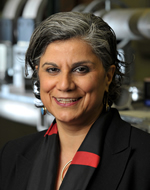
"A postdoctoral scholar has gained much experience over the graduate years and is in an excellent position to learn new areas quickly. Postdocs can try out new ideas without the challenge of garnering funding for their research. Moreover, they can operate more independently than graduate students—all while setting a good example and providing assistance to current graduate students.
The postdoctoral experience at the University of Notre Dame Nuclear Science Laboratory is viewed as a continuation of education and training. A diverse and outstanding group of postdoctoral fellows has been easy to recruit given the international/national reputation of the Joint Institute for Nuclear Astrophysics (JINA) and the Nuclear Science Laboratory at Notre Dame. Postdoctoral fellows at the NSL are trained and mentored for future careers in academia, medicine, industry, and national laboratories. (Review the Nuclear Science Laboratory’s Postdoctoral Mentoring Policy - MS Word.)
Collaborations are a very important part of advancing knowledge. We have been fortunate to attract well-known scientists from other universities and laboratories worldwide to come and spend some time here at Notre Dame with our students and faculty. Visiting scientists are a valuable addition to our research effort. They bring special skills and a knowledge base that, together with our expertise in many areas, works to expedite scientific discoveries and technical progress on some of the most challenging questions of the day."
Hsueh-Chia Chang
Professor of Chemical and Biomolecular Engineering
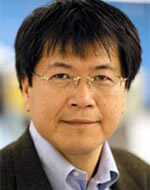
"Postdocs and non-faculty researchers bring new technical expertise, fresh scientific insights and community networking to my laboratory. These ingredients are absolutely important in cutting-edge interdisciplinary engineering research of the 21st century.
In my field of microfluidics and nanotechnology, we have one of the best core facilities in the world and some of the best scientists. Notre Dame also offers a more collegial and nurturing environment than most high-stress research universities for future scientists and faculty members. This supportive structure is particularly important for international postdoc candidates who are not familiar with the US scientific community. My lab, for example, has placed more than 10 postdocs in tenure-tracked positions in the last 10 years."
Learn More about Professor Chang
Lee Anna Clark

"Having postdoctoral research associates has been absolutely vital to the success of my research project.
Postdocs are able to contribute to the research at a level that is not possible for graduate students or non-doctoral level staff. For example, the postdoctoral research associate on my project took the lead on all aspects related to one of our semi-structured interviews, including everything from developing and refining it, to training the graduate student RAs on the interview and cleaning the data we collected using it, and not to mention administering many of the interviews to our research participants.
Further, postdocs are able to take charge of analyzing data and writing it up for publication, thus boosting the productivity of the lab.
Moreover, because, for the most part, postdocs are not pulled in the multiple directions that faculty members are (e.g., by teaching, committee work, letters of recommendation for students, tenure reviews, and so on), they are a more constant presence in the lab than the faculty member can be. This provides a valuable continuity of oversight of the project, including helping to monitor the work of students in the lab.
Postdocs are also a great source of intellectual stimulation, as they ask challenging questions and raise important issues that lead the faculty member to think more deeply than s/he might otherwise. Plus, postdoctoral research associates are among the few people in the world who are just (or almost !) as interested in your research as you are.
There are a number of reason why a postdoctoral research associate might choose the University of Notre Dame as a place to further his or her career.
For the first two years of the appointment, the University provides discretionary funding to help defray the expenses of attending conferences or other research costs.
In addition, the undergraduate students at our University are very bright and motivated, so postdocs are able both to get some help with their research endeavors and also to get some experience in research supervision prior to setting up their own lab when they secure a faculty position.
Further, taking the converse of a point made earlier, because postdocs are not pulled in the multiple directions that they will be when they become faculty, they are able to concentrate on developing the research side of their CV and may have the opportunity to teach a class as well, both of which help to improve their chances on the job market and prepare them for a future faculty position.
Finally, there are also myriad non-academic benefits of being associated with Notre Dame as a non-faculty research appointee, such as the benefits package, free access to fitness facilities, relatively low-cost access to a wide range of artistic shows and performances, and not to mention the beautiful campus."
Crislyn D’Souza-Schorey
Professor of Biological Sciences
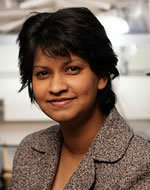
"Postdoctoral scientists in my laboratory are valued colleagues and collaborators. They add breadth and depth to the lab’s research endeavors by bringing in new perspectives and scientific skills while at the same time enhancing their own. They have opportunities to acquire necessary career skills in supervising and mentoring students, assisting with editorial responsibilities, making spending decisions on grants, etc. and by doing so, they assist me with laboratory management. It is gratifying to teach others what one has learned especially if is helps them advance professionally.
There is immense benefit to the research enterprise from a culture of collaboration among a variety of disciplines. Notre Dame, because of its size and structural organization provides an ideal environment to facilitate interdisciplinary collaboration. Revitalization efforts in recent years through significant and strategic investment in infrastructure and academic programs across the campus, has generated a new momentum as the University positions itself to forge ahead with an ambitious and decisively upward research trajectory. There has never been a more opportune time to address cutting edge questions using interdisciplinary approaches and state-‐of-‐the-‐art technologies at the University of Notre Dame. In addition, the University’s mission is deeply rooted in being a force for good. Finally, South Bend is a great place to raise young families; it is located 80 miles from Chicago and in easy access to a large metropolitan, yet is relatively inexpensive and safe."
Boldizsar Janko
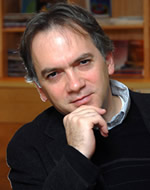
"Our postdoctoral research associates had tremendous impact on our NSF and DOE-funded research projects. These young and energetic, enthusiastic colleagues who were already experts in their fields, brought a different point of view and different background to what we already had here at Notre Dame. This combination of expertise and knowledge led to breakthroughs we would not have reached without the close collaboration with our postdoctoral colleagues.
A great, and relatively recent example of this is the "perspective/insight" article we published in Nature Physics jointly with Professor Masaru Kuno from Chemistry, Professor Rudy Marcus from Caltech (a Nobel laureate) and very importantly, Dr. Pavel Frantsuzov, our former postdoc. Pavel's insights and encyclopedic knowledge of the literature on nanofluoescence contributed greatly to the success of this paper, which is now one of the most cited reviews in the field. Dr. Frantsuzov, as well as other postdocs and visitors we had over the years, interacted closely with the graduate students in our group, an interaction that had huge impact on the student's education, training, and overall development as a young physics expert of their chosen field of research.
The postdoctoral period consists of very important formative years in the career of a scientist, a transition towards becoming an independent researcher with the ability to conduct world class research and supervise graduate students. The research group and the greater intellectual environment where this transition occurs is crucial.
Notre Dame provides a very diverse intellectual and cultural environment, nurturing creativity and interdisciplinary work. The Notre Dame research environment is rather unique in many fields of active research and a postdoctoral or visiting scholar can greatly benefit from the uniqueness, international visibility and strength of these research programs."
Learn More about Professor Janko
David Severson
Professor of Biological Sciences
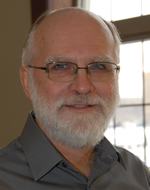
"The addition of highly qualified non-faculty research appointees to our research team offers an excellent opportunity to bridge gaps in critical expertise, particularly in light of the growing demand for interdisciplinary research activities. These appointees bring fresh ideas and allow us to expand the depth of our research objectives.
The University of Notre Dame offers excellent opportunities for non-faculty researchers to integrate into a number of internationally recognized research areas and quickly develop collaborations with some of the lead researchers. Over the past several years, the university has invested heavily in strengthening our research capacity, both in faculty hires and infrastructure improvements."
Learn More about Professor Severson
James Fetter
Postdoc under the guidance of Prof. Michael Zuckert
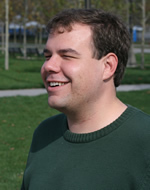
With the critical November elections now upon us, the work of political theorist James Fetter ND Ph.D. Political Science ’12 couldn’t be more timely.
James studies and writes about the virtues of political leadership. Now a postdoctoral fellow at Notre Dame in the Tocqueville Program For Inquiry in Religion and American Public Life, he is interested in ancient, medieval, and early modern models of statesmanship and political leadership as well as the contemporary relevance of these models.
James’ path to his research interest, and to Notre Dame’s highly regarded program in political theory, began in his Virginia high school, where his Latin teacher sparked an interest in both the classics and in politics more broadly. As a Woodruff Scholar at Emory University, James took a few political theory classes and proclaimed himself “hooked.” Read More >>
David Kang
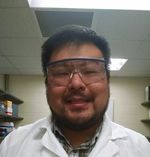
Postdoc under the guidance of Prof. David Severson
Dave Kang is a postdoctoral scholar at Notre Dame working to characterize the molecular genetics of vector populations and how they relate to the epidemiology of vector-borne pathogens. Dave earned his Ph.D. from Baylor University where he used a transcriptomic approach to study diapause in the West Nile mosquito Culex pipiens. Under the guidance of Professor Severson he investigates the impact of environmental variables and stressors on immune responses that cause differences in susceptibility of different mosquito genotypes to viruses such as Zika and dengue. Ultimately, he is interested in how genetic variation can be utilized to effect the transmission of pathogens.
Despite the soul crushing winters, he very much appreciates the opportunity to collaborate with the research family at Notre Dame.
Marion Wittmann
Postdoc in Prof. David Lodge’s Laboratory
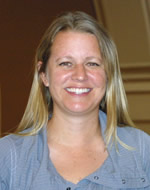
Marion Wittman is a postdoctoral scholar at Notre Dame working right where she wants to be—at the intersection of science and policy as they relate to invasive species in the Great Lakes.
Her appointment is in the laboratory of Prof. David Lodge, the Ludmilla F. and Stephen J. Galla Professor of Biology, and a world-renowned expert on invasive species.
Under Prof. Lodge’s direction, Marion is examining the impacts of global environmental changes on drinking water, recreation, fisheries, biodiversity, and other ecosystem goods and services. Much of the lab’s research has a strong focus on ecological forecasting to better inform environmental risk assessment, policy, and management.
What Marion values most about her appointment is the work she is doing with other collaborators—for example, the National Oceanic and Atmospheric Administration, the Great Lakes Restoration Initiative, and the Environmental Protection Agency.
"What is critical to me as a postdoc,” she says, “is the opportunity for pure research and to form my own personality as a scientist. I have the time to read, publish, and work on what I’m passionate about. A postdoc appointment is the time to invest in yourself and to focus yourself for your next step."
Yong Zhang
Postdoc in Prof. Edward Maginn’s Laboratory

Yong Zhang is a postdoctoral scholar at Notre Dame working at the intersection of science and engineering.
His appointment is in the laboratory of Prof. Edward Maginn, Professor and Chair of Chemical and Biomolecular Engineering, and a world-renowned expert on ionic liquids.
Under Prof. Maginn’s direction, Yong is investigating the solid-liquid phase equilibria of ionic liquids, with a particular emphasis on the prediction of melting points. This research is part of a project funded by the Department of Energy aimed at searching for novel ionic liquids for carbon dioxide (CO2) capture from flue gas.
Yong says that what he values most about his appointment is the opportunity to collaborate right on Notre Dame’s campus with researchers from many fields.
"As a computational chemist, it is great to have your simulational results confirmed by experiments. It is even better if the people next door can do such experiments for you in a timely manner. The close connection between research groups within the department, as well as across departments at Notre Dame—both in computational groups and experimental groups—is a perfect example of such collaboration.
"What is critical to me as a postdoc," Yong adds, "is that it is the bridge connecting a student and a real career. While postdocs are still learning, without exams, research becomes the focus. And, with more years of experience in the field, future research and career directions become clearer. A postdoc appointment is also the opportunity to try something different before you settle down."